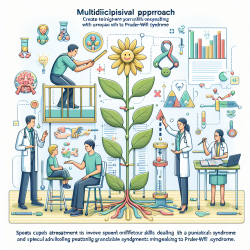Introduction
Attention-deficit/hyperactivity disorder (ADHD) is a prevalent neurodevelopmental disorder that persists into adulthood for many individuals. The economic burden of ADHD is significant, particularly in terms of productivity losses. This blog explores the findings of a cost-effectiveness analysis of lisdexamfetamine dimesylate (LDX) for treating adults with ADHD in the UK, offering insights for practitioners to enhance their treatment strategies.
Understanding the Study
The study, conducted by Zimovetz et al., aimed to estimate the cost-effectiveness of LDX compared to methylphenidate extended release (MPH-ER) and atomoxetine (ATX) from the UK National Health Service perspective. A decision-analytic model was used to evaluate health outcomes, including response and non-response rates, and the ability to tolerate the medications.
Key Findings
- LDX was found to be a dominant strategy compared to both MPH-ER and ATX, reducing costs and increasing quality-adjusted life years (QALYs).
- LDX reduced the mean per-patient annual cost by £5 compared to MPH-ER and by £200 compared to ATX.
- The probability of LDX being cost-effective at a threshold of £20,000 per QALY was 61% against MPH-ER and 80% against ATX.
Implications for Practitioners
For practitioners, these findings suggest that LDX is a cost-effective option for treating adults with ADHD. Implementing LDX in treatment plans could not only improve patient outcomes but also reduce the economic burden on healthcare systems. Practitioners are encouraged to consider these findings when developing individualized treatment plans for their patients.
Encouraging Further Research
While this study provides valuable insights, further research is needed to explore the long-term cost-effectiveness of LDX and other ADHD medications. Practitioners should stay informed about ongoing research to continually refine their treatment approaches and ensure the best outcomes for their patients.
Conclusion
The study by Zimovetz et al. underscores the potential of LDX as a cost-effective treatment for adults with ADHD. By integrating these findings into practice, healthcare providers can enhance their therapeutic strategies, ultimately benefiting both patients and the healthcare system.
To read the original research paper, please follow this link: A cost-effectiveness analysis of lisdexamfetamine dimesylate in the treatment of adults with attention-deficit/hyperactivity disorder in the UK.










